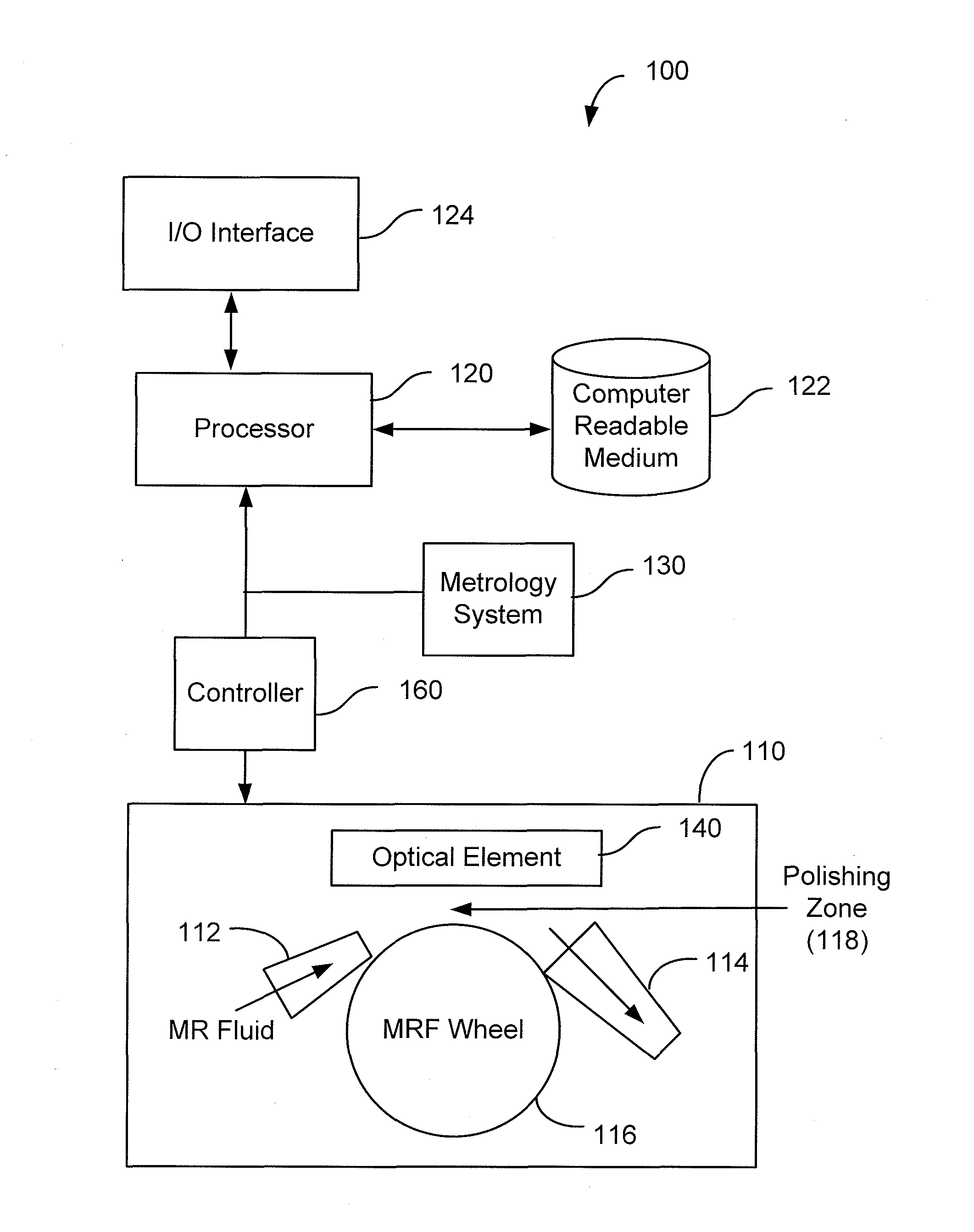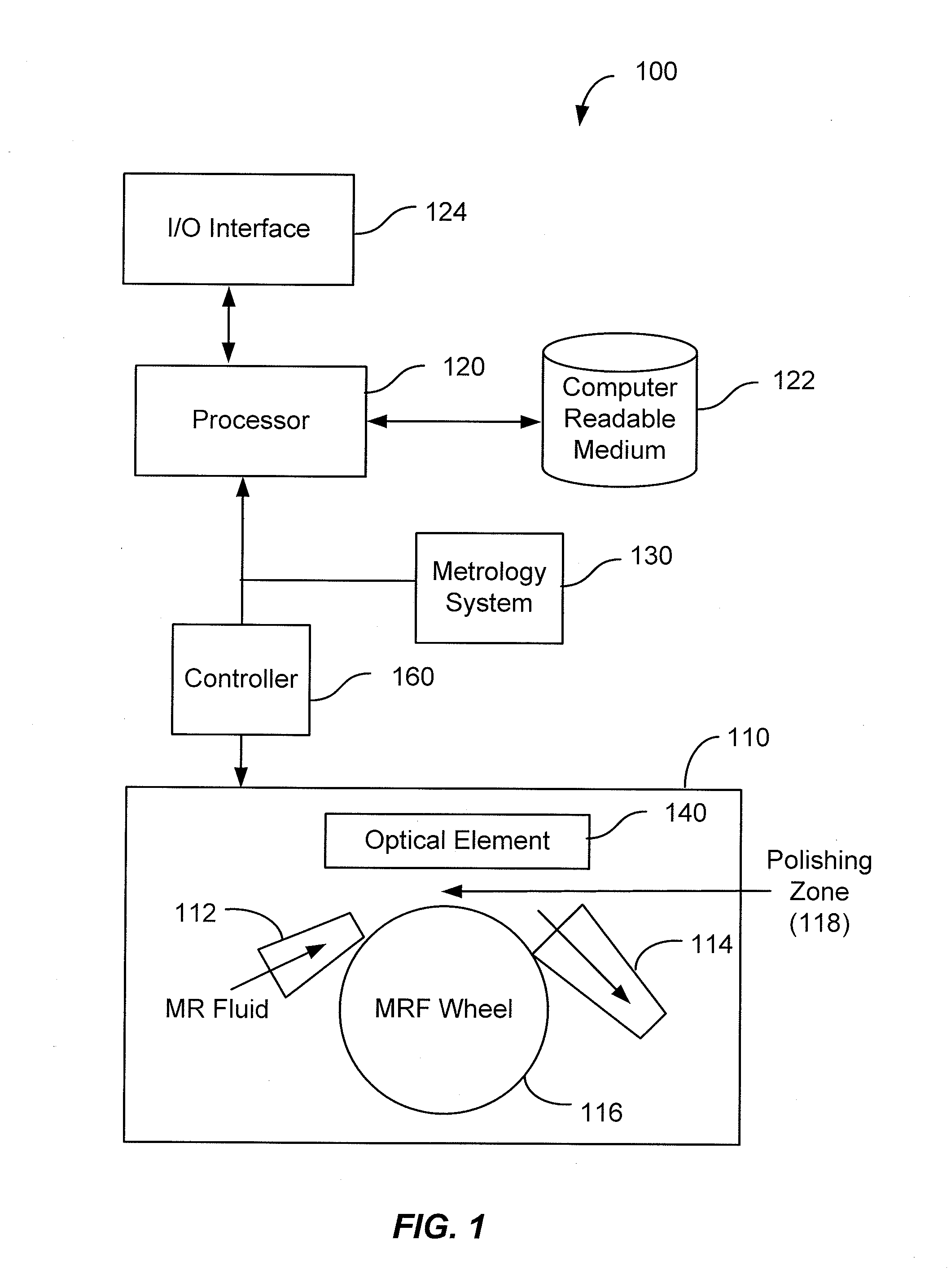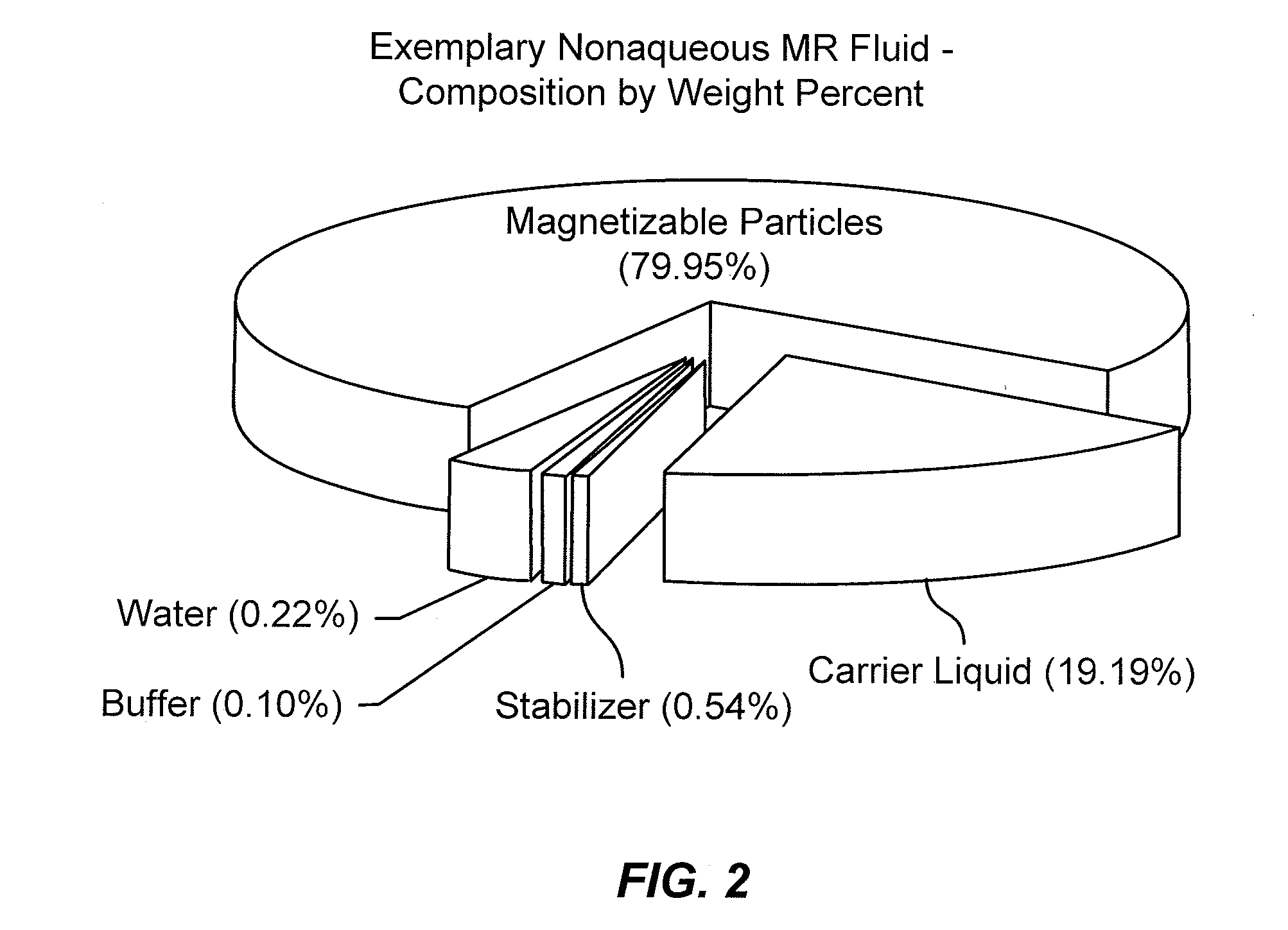Method and system for polishing materials using a nonaqueous magnetorheological fluid
a nonaqueous magnetorheological fluid and polishing technology, applied in the field of optical systems, can solve the problem that kdp is an extremely difficult material to conventionally polish, and achieve the effect of improving optical figure and finish, and improving high-intensity/high-power laser damage performan
- Summary
- Abstract
- Description
- Claims
- Application Information
AI Technical Summary
Benefits of technology
Problems solved by technology
Method used
Image
Examples
Embodiment Construction
[0023]According to embodiments of the present invention, magnetorheological finishing (MRF) polishing techniques are utilized to finish optical elements. MRF is a deterministic, low force, and temperature independent polishing technique that is useful for surface finishing as well as transmitted wavefront correction. Embodiments of the present invention provide magnetorheological (MR) fluids utilizing a “nonaqueous” carrier liquid so that the MR fluid is chemically and physically compatible with the family of KDP and ADP crystals during polishing and can be subsequently cleaned from the optical element.
[0024]Previous attempts to use MRF to polish KDP have met with limited success and were not able to use MRF to adequately and consistently polish KDP surfaces and subsequently clean the KDP. Dicarboxylic acid ester carrier fluids, although compatible with KDP in neat form over a short time interval, react with KDP and carbonyl iron. Dicarboxylic acid ester carrier fluids also undergo ...
PUM
| Property | Measurement | Unit |
|---|---|---|
| weight percent | aaaaa | aaaaa |
| weight percent | aaaaa | aaaaa |
| weight percent | aaaaa | aaaaa |
Abstract
Description
Claims
Application Information
 Login to View More
Login to View More - R&D
- Intellectual Property
- Life Sciences
- Materials
- Tech Scout
- Unparalleled Data Quality
- Higher Quality Content
- 60% Fewer Hallucinations
Browse by: Latest US Patents, China's latest patents, Technical Efficacy Thesaurus, Application Domain, Technology Topic, Popular Technical Reports.
© 2025 PatSnap. All rights reserved.Legal|Privacy policy|Modern Slavery Act Transparency Statement|Sitemap|About US| Contact US: help@patsnap.com



